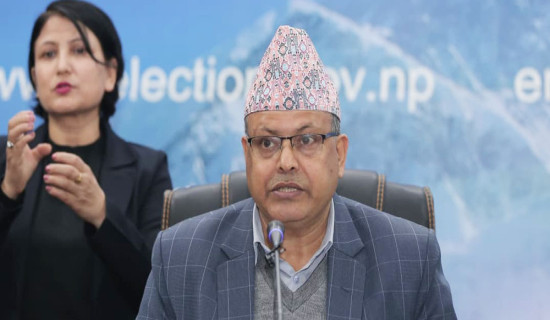- Saturday, 28 February 2026
Action Plan For Exiting fatf Grey List
Nepal has once again fallen into the grey list of the Financial Action Task Force (FATF). During the plenary meeting of the FATF held in Paris from February 17 to 21, 2025, Nepal, along with Laos, was placed on the grey list. Before that, the Asia-Pacific Group on Money Laundering (APG) had reviewed and evaluated Nepal’s performance on money laundering and allied fronts and found weaknesses in the enforcement, investigation and prosecution of financial crimes and inadequate monitoring and regulation of high-stakes sectors such as real estate and cooperatives. The APG then recommended that Nepal be listed on the grey list.
The FATF is an international policymaking and standard-setting body established by G7 countries. It aims to combat money laundering and terrorist financing so that financial crimes can be reduced across the world. The FATF has several parameters, standards and indicators to gauge the effective enforcement of various technical and financial achievements. Nepal was also on the grey list from 2008 to 2014. At the time, Nepal amended the Anti-Money Laundering Act and made reforms in its framework. This made it possible for the country to exit the grey list.
Reforms
This time, lax enforcement of the laws in place forced Nepal into the grey list. It may be noted that Nepal had been given till October 2024 to meet the FATF standards after an extension in July 2023. But the country miserably failed to meet these standards. In fact, there was failure on the part of the country to fully implement necessary legal, policy and structural reforms to combat money laundering and terrorist financing. The Paris meeting gave Nepal two years to make the required reforms to get off the grey list. The grey list, officially called jurisdictions under increased monitoring, includes nations that have failed to counter money laundering and terrorist financing but that are actively working with the FATF to address these crimes.
When a country falls into the grey list, its financial status and reputation come down in the international market. As the country's image gets tarnished in the international arena, it may fail to attract foreign direct investments and foreign aid or grants. Its transaction costs may also go up. If no reforms required to exit the grey list are made, the country may fall into the black list. A blacklisted country will have to face more international transaction hurdles as well as sanctions.
Repercussions
The repercussions of a grey listing are serious. Studies have shown that nations on the grey list are adversely impacted. They have their currencies depreciated, overseas funds transfers contracted, international banking relations decreased and capital markets dented. Nepal has several lapses. It is not making adequate headway on anti-money laundering and allied fronts. It has failed to investigate financial crimes satisfactorily and enforce laws required to improve financial activities. For example, cooperative and microfinance sectors have witnessed so many financial crimes in the form of defalcation of billions of rupees belonging to their depositors.
The victims are clamouring for the return of their hard-earned money but the government has not taken concrete measures to address the scam. Now, the cooperative and microfinance victims are protesting on the streets, demanding the return of their funds. Nepal is regarded as a haven for money laundering owing to the political instability. Investigation into and prosecution for money laundering are rare. The open border with India and an active informal sector have made it difficult to control money laundering. The provision in the Financial Act to the effect that the government will not seek the sources of income from investors if they are investing in infrastructure projects and businesses seems to be undesirable.
However, Nepal has initiated the process of exiting the grey list. Last week (April 8, 2025), the meeting of the Asset Recovery and Prevention Committee decided to finalise the action plan that will be implemented effectively to get the country off the grey list within two years. It will be typically reviewed every three months. If headway is swift, the country can get off the grey list within a year. Reforms in the sector concerned will also be made so that the country will not fall back into the grey list in the future. The government should learn lessons from the fact that the country has fallen into the grey list twice.
Risk assessment
It may be noted that the Paris plenum has already approved the action plan for the country to execute to get off the grey list. Long-term reforms are required to avoid falling into the grey list. So the government should take the issue seriously. There are some key sectors to which the government should pay heed. They include risk assessment, better coordination between agencies, effective regulation, improved investigation and prosecution mechanisms and robust asset recovery efforts.
The government and private sector should work in tandem to counter money laundering and terrorist financing. To make the fight against money laundering and terrorist financing effective, the government should equip the private sector with the necessary technology, knowledge, manpower and other mechanisms. The private sector should be apprised of money laundering and terrorist financing and the ways and means of curbing them. Political will is a rara avis in Nepal. If there is political will, anything can be accomplished. As falling into the grey list is a grave factor that can play havoc with the economy of the country when it is preparing to graduate from the category of least developed countries in 2026, the government must show its willingness to execute the action plan to come out of the grey list.
(Maharjan has been regularly writing on contemporary issues for this daily since 2000.)
















